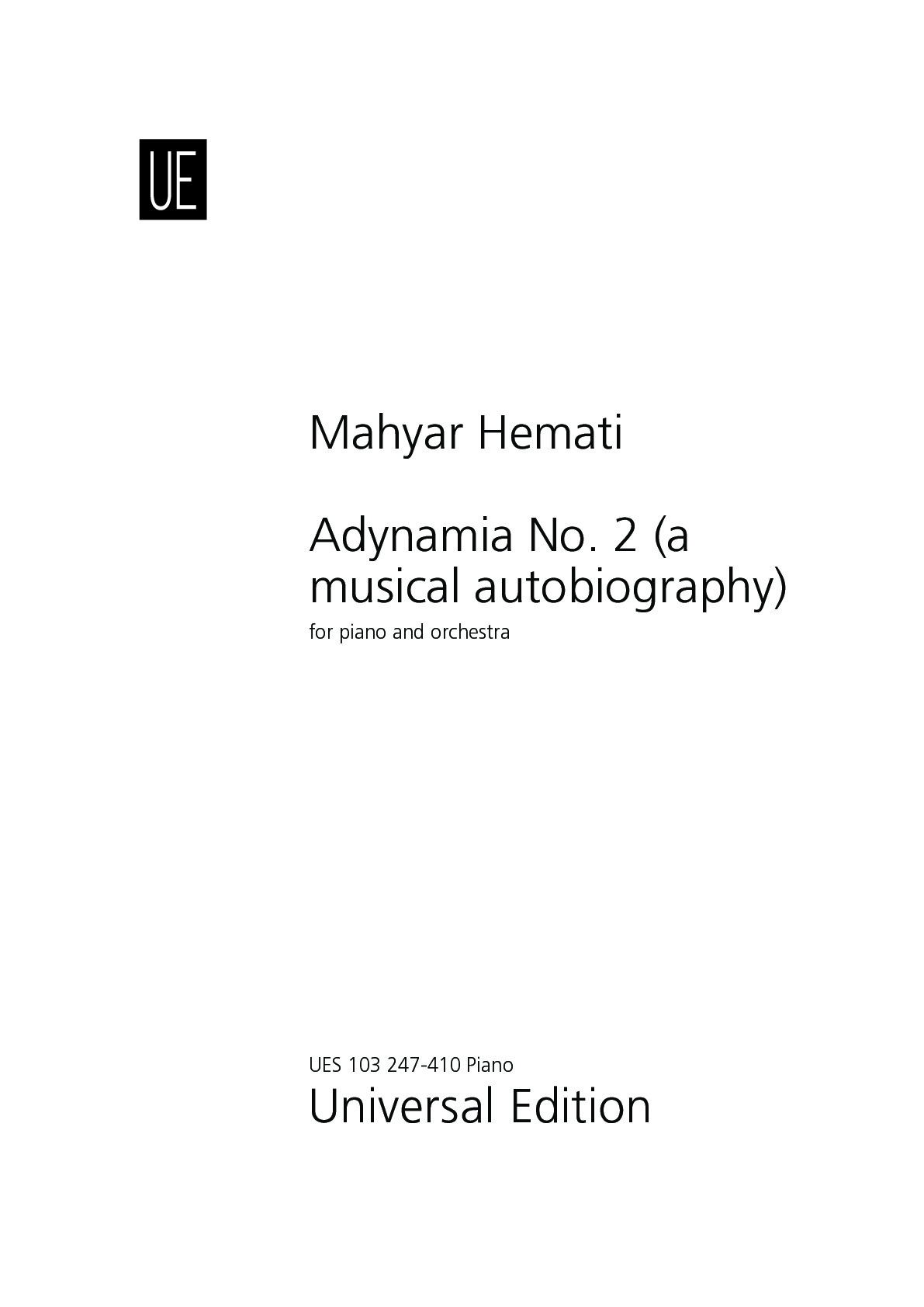.png)
Payments:
Shipping:
Mahyar Hemati
Klavier (Adynamia No. 2 (a musical autobiography))
UES103247-410
Type: Solostimme(n)
Format: 210 x 297 mm
Pages: 4
Payments:
Shipping:
Description
To compose a piece of music, the most essential yet difficult thing is that you should live it before! Dynamia means potentially. The "I can" that represents all of our actions. This potentially always have to transform to an action. To "Energica" as Aristotle defines. Adyanmia however means "Impotentiallity". The ability to deny this cycle. The cyrcle of gainig approval from the society by transforming your Dynamia to Energica. It shouldn't be misunderstood with weakness. It's more likely the power of denying the power! The power of negating the society and their approval. And the price for this is to negate yourself (not as you define yourself but as the society defines you as a human being which must be capable of something) and guess we can all agree that it's a very expensive price!
Composing to me is not something fancy and separable from the composer's life. Not even inseparable but also totally connected. In this piece, I just narrated my life experience from the moment I can recall. All the musical elements, including instruments, themes and...etc are representative as a certain period of my own life and guess it would be needless to say that piano is representing myself as well! I recall this sentence from Fernando Pesoa in his book of disquiet: these are my confessions. And if in them I say nothing, it's because I have nothing to say...
A brief explanation about the text: "For with my own eyes I saw the Sibyl at Cumaee hanging in a bottle, and when the young boys asked her, 'Sibyl, what do you want?', she replied, 'I want to die' Sec. 48In the T. S. Eliot poem,"The Waste Land", this quote is written by Petronius in Greek and Latin as follows: Nam Sibyllam quidem Cumis ego ipse oculis meis vidi in ampulla pendere, et cum illi pueri dicerent: Sivylla ti theleis; respondebat illa: ?pothane?n thelo'.The quote refers to the mythic Cumaean Sibyl who bargained with Apollo, offering her virginity for years of life totaling as many grains of sand as she could hold in her hand. However, after she spurned his love, he allowed her to wither away over the span of her near-immortality, as she forgot to ask for eternal youth. I've used both English translation and one sentence from the original Latin text which the strings have to sing it in unison with the notes they are playting which is: Apothanein thelo (apothanein thelo) that means: I want to die. For the speaking/whispering parts however, I've used the English translation of this qoute by T. S. Elliot.
More information
Type: Solostimme(n)
Format: 210 x 297 mm
Pages: 4

